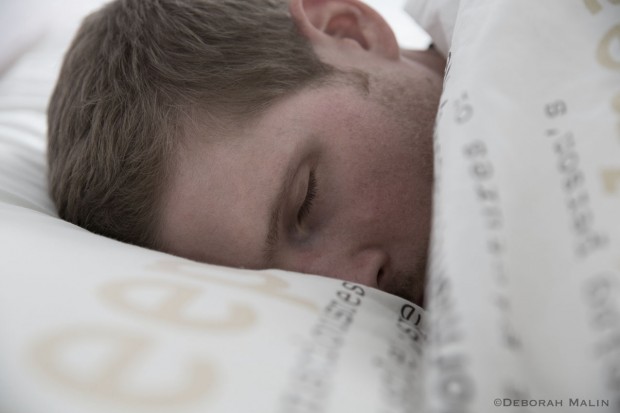How can I improve my quality and quantity of sleep?
Of course, getting ‘enough’ sleep isn’t just a case of counting the hours. The quality of sleep is absolutely vital, too.
There are a multitude of things which can negatively affect sleep, including stress, diet and lifestyle, and these can potentially cause insomnia or, at the very least, disrupt the quality of sleep and your body’s ability to truly shutdown.
A number of devices can help you track the quality and quantity of your sleep, including the Fitbit Blaze smart fitness watch, which automatically tracks your time asleep and time restless so you see how much recovery you’re getting in. By setting sleep goals within the Fitbit app, Blaze can also help to manage sleep patterns.
There are also a number of simple things you can take to improve the quality of sleep and one key step – particularly in the 21st Century – is to remove yourself from artificial light before going to bed.
“The killer for me is artificial light and use of smart phones before bed,” says Bryan. “You should aim to either turn these off, or have a rule about not checking it after a certain time, giving your mind time to switch off from the stimuli. I also advise trying not to fall asleep with TV on, because the light and noise will disrupt how deeply you sleep even if it doesn’t wake you.”
Sleeping conditions are also important and that includes factors such as the quality of your bed, temperature, humidity, general light source, as well as smells and pollution. In fact, most experts suggest that making the bedroom a dedicated space for sleep, devoid of distractions, is one of the best ways for creating an atmosphere conducive to sleep.
Additionally, eating and drinking immediately before bed can lead to disrupted sleep because your digestive system is working hard. “In particular, you should avoid things with high caffeine and sugar content, which will spike your blood sugar and put a hold on your sleep,” recommends Bryan. You should also avoid over-hydrating, because getting up repeatedly in the middle of the night will disturb your natural sleep cycle.
Ensuring you relax before trying to sleep is also important, says Bryan. He recommends attempting breathing exercises, pointing out that this might work particularly well for people who’ve had a particularly stressful day. “The more relaxed you can be before you go to bed the better the night sleep will be,” he says.






